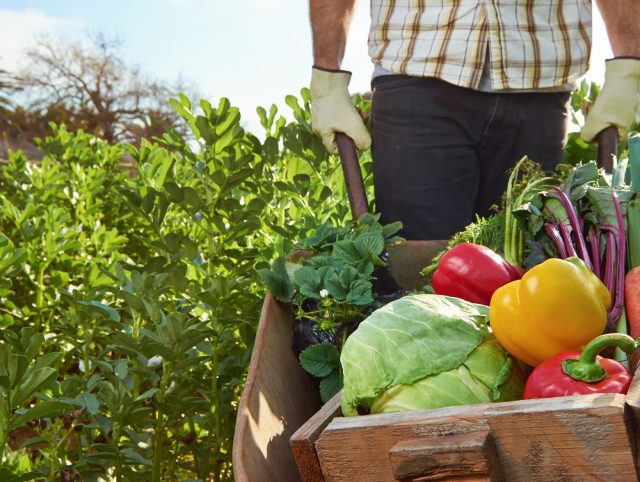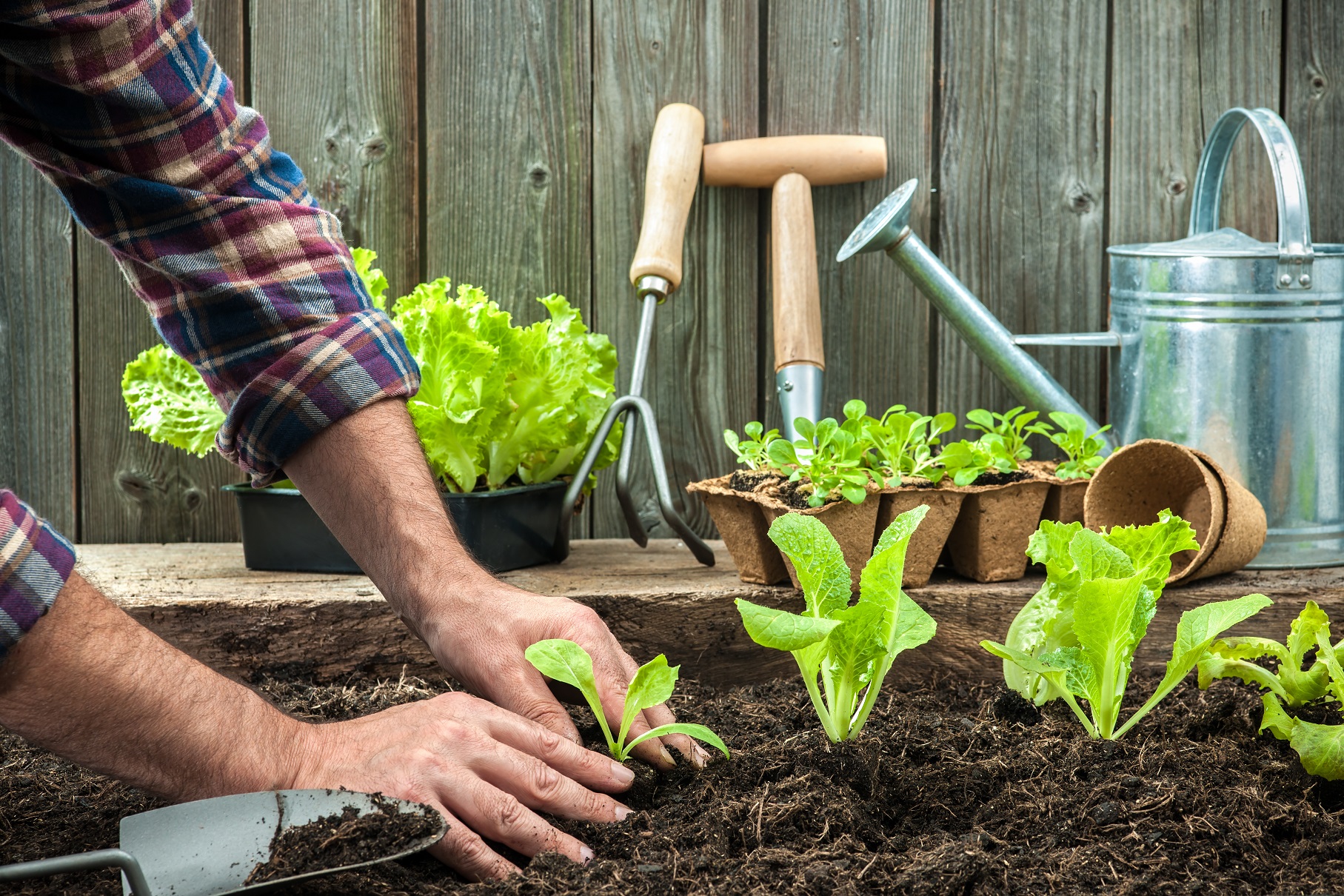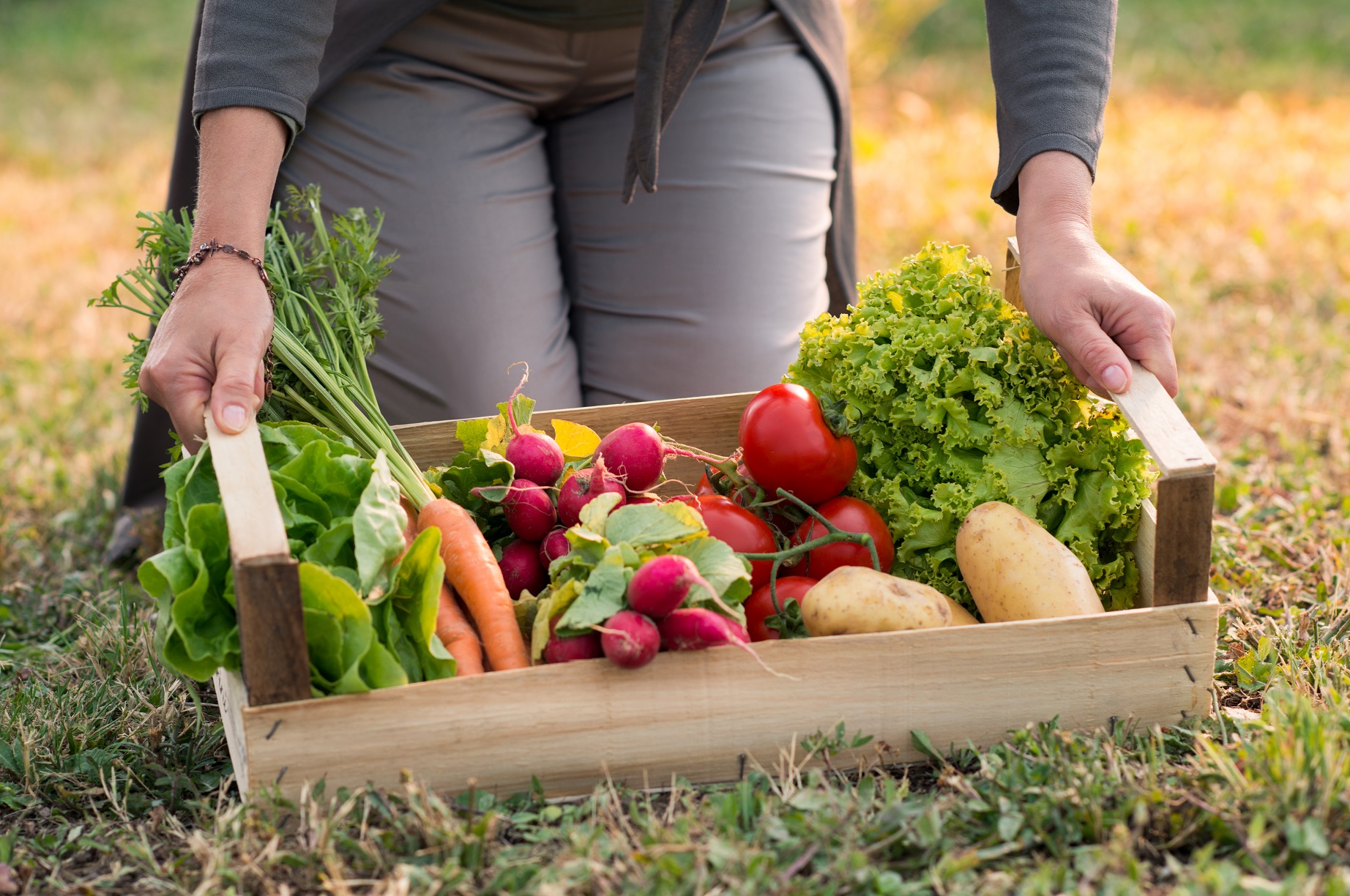Grow Your Own Vegetables
Get fresh, home-grown, chemical-free vegetables by growing your own vegetables. It costs less, is a great hobby to pursue and is less stressful or time-consuming.
It is possible to grow your own vegetables in limited spaces like a balcony, a terrace, open passages or even a window sill. And you can start your own kitchen garden with what you have at home!
Get down to brass tacks
- Identify places in your home that get direct sunlight for your pots or a small garden.
- Leafy vegetables and herbs need about three to four hours of direct sunlight. Other vegetables and fruits need about six hours of sunlight.
- If you are planning to grow vegetables in pots, select porous earthenware pots. You can also use old buckets, tubs, containers, oil cans, plastic water bottles, wooden crates, etc. Use small containers to recycle for planting small herbs. Leafy vegetables need tray-like containers.
- Pots or containers should be at least 6” deep for leafy vegetables, 8-10” deep for vegetables that grow on stems, and for root vegetables, at least 12” deep.
- The ideal soil mix consists of two parts of red earth (which you can get from a nursery), one part porous mix, like coco-peat, sugarcane bagasse, powdered bricks or broken pieces of earthenware pots, gravel or tiles and one part organic manure like home compost, vermi-compost or cow-dung manure.
- Dry seeds from the vegetables you buy or procure them from nurseries. Sow seeds in small pots and transplant into bigger pots, or sow them in big pots directly.
- Seeds are available in nurseries at very reasonable prices. It is best to buy open pollinated seeds. Avoid hybrid seeds.
- Start with a single vegetable first and gradually expand your kitchen garden.
- Fenugreek or methi seeds are the best to start your green endeavor.
- Soak fenugreek seeds overnight, throw off the top water and wait for the seeds to sprout. Now sprinkle them in the container you have prepared, ideally with coco peat. Fenugreek can be harvested in 40 days.
- Tomatoes, chilies, tulsi (basil), different varieties of spinach and turmeric are easier to grow as they do not need much care. You can see results in two months.
- Plants like pudina (mint) and lemongrass propagate with cuttings.
- Tomatoes need a trellis to grow.
- If you have a little space or a medium-sized bathtub, you can also grow French beans, brinjal, okra, ridge gourd, cabbage, cauliflower, capsicum, radish, potato, onion, etc.
- Most vegetables need about two-three months to grow and bear fruit.
- Water plants regularly. Waste water from the kitchen can be used for watering.
- Water in the morning or evening. In summer, water twice a day. Leave a gap of one day after the last rain before you start watering.
- Use home-composting to enrich the soil.
- Sprinkle red earth in your pots or soil where your plants grow occasionally.
- Mulch your soil. For mulch, use crushed dry leaves from the garden or sugarcane bagasse and coco-peat from a nursery.
DIY
- Mix 10ml of neem oil with 1 liter of water and spray to keep pests away.
- Boil 2-3 green chilies, half an onion and 2-3 cloves in water. Cool and spray on plants to repel insects.
- Make self-watering cans out of recycled bottles at home.















































